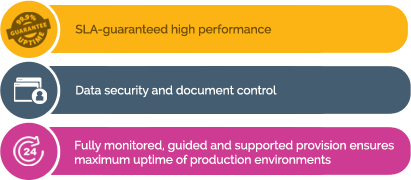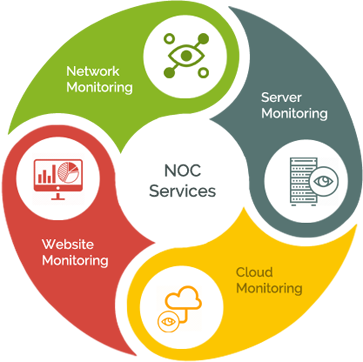Managed Cloud Services
For enterprises searching for a more cost-effective way of managing IT infrastructure, managed cloud services may provide the answer.
Organizations today are looking for new and smarter ways to get more from their IT infrastructure. By providing on-demand servers, storage, memory and bandwidth, managed cloud services enable IT teams to more easily optimize resources to deliver superior security, availability and flexibility. With a pay-as-you-go pricing model, managed cloud services enable organizations to reduce capital expense by provisioning only the infrastructure needed at any given moment. And with cloud services companies taking responsibility for monitoring, maintaining and updating virtualized infrastructure, IT teams are allowed to spend less time on routine tasks and more time on strategic priorities that have the power to move the business forward in important ways.
Organizations today are looking for new and smarter ways to get more from their IT infrastructure. By providing on-demand servers, storage, memory and bandwidth, managed cloud services enable IT teams to more easily optimize resources to deliver superior security, availability and flexibility. With a pay-as-you-go pricing model, managed cloud services enable organizations to reduce capital expense by provisioning only the infrastructure needed at any given moment. And with cloud services companies taking responsibility for monitoring, maintaining and updating virtualized infrastructure, IT teams are allowed to spend less time on routine tasks and more time on strategic priorities that have the power to move the business forward in important ways.
Refine cloud computing strategies and plans
Develop business cases
Undertake technical planning and design
Implement Cloud services and integrate them back to on-premises systems
Provide managed services and support across disparate infrastructure environments
Benefits


NOC Services
A network operations center, also known as a "network management center", is one or more locations from which network monitoring and control, or network management, is exercised over a computer, telecommunication or satellite network.
Enmarq implements NOCs that oversee complex networking environments that require high availability. NOC personnel are responsible for monitoring one or many networks for certain conditions that may require special attention to avoid degraded service. Organizations may operate more than one NOC, either to manage different networks or to provide geographic redundancy in the event of one site becoming unavailable.In addition to monitoring internal and external networks of related infrastructure, NOCs can monitor social networks to get a head-start on disruptive events.


SOC Services
A security operations center (SOC) is a centralized unit that deals with security issues on an organizational and technical level. A SOC within a building or facility is a central location from where staff supervises the site, using data processing technology. Typically, a SOC is equipped for access monitoring, and controlling of lighting, alarms, and vehicle barriers.
An information security operations center (ISOC) is a dedicated site where enterprise information systems (web sites, applications, databases, data centers and servers, networks, desktops and other endpoints) are monitored, assessed, and defended.
Global Helpdesk Services
A typical help desk can effectively perform several functions. It provides a single (or multiple) point of contact for users to gain assistance in troubleshooting, get answers to questions, and solve known problems. A help desk generally manages its requests through the use of software such as issue tracking systems. These systems often involve the use of a "local bug tracker" (LBT). This system allows the help desk to track and sort user requests with the help of a unique number, and can frequently classify problems by user, computer program, or similar categories. Many software applications are available to support the help desk function. Some target the enterprise level help desk and some target departmental needs.Large help desks are often structured into different levels to handle different types of questions. For example, a first-level help desk may be prepared to answer the questions or provide the information commonly found among the FAQ or in a knowledge base. If the issue is not resolved at the first level, it can be forwarded to a second level with resources to handle more complex issues. Organizations may also have a third line of support to deal with software-specific needs, such as updates and bug fixes that directly affect a specific client.

